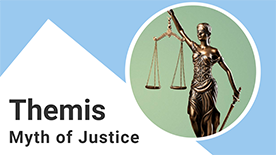Scenario C
Gaia,
the myth of interconnections
where a fluid society is kept afloat by recurring to soft policy instruments
the myth of interconnections
The potential for change in society is unlocked by a profound renewal of the welfare state, along a redistributive model. Governments are open to societal transformation, and are inspired by the bottom-up approach at all levels. Governments do not perceive a need to correct inequalities or societal injustice through centralised public intervention, exemplified in the welfare state, but explore alternative approaches.
An alternative model to the classical welfare state is developed, leveraging on smaller scale redistribution processes and favouring a collaborative approach. Policies are designed to favour the empowerment of groups of people (e.g. as in cooperatives). There is an emergence of ‘societal innovation’. The steering part of governance is realised through ‘awareness campaigns’ rather than through authoritarian measures. The goal of equity is pursued at a collective level, hybridised with an active progressive state infrastructure.
A new economic paradigm shows the results of a profound economic transformation. It is widely accepted that the dominant liberal market ideologies of the 20th Century – grounded in growth, materialism, ownership, etc. – are compatible with neither the needs and demands of society nor sustainability objectives.



